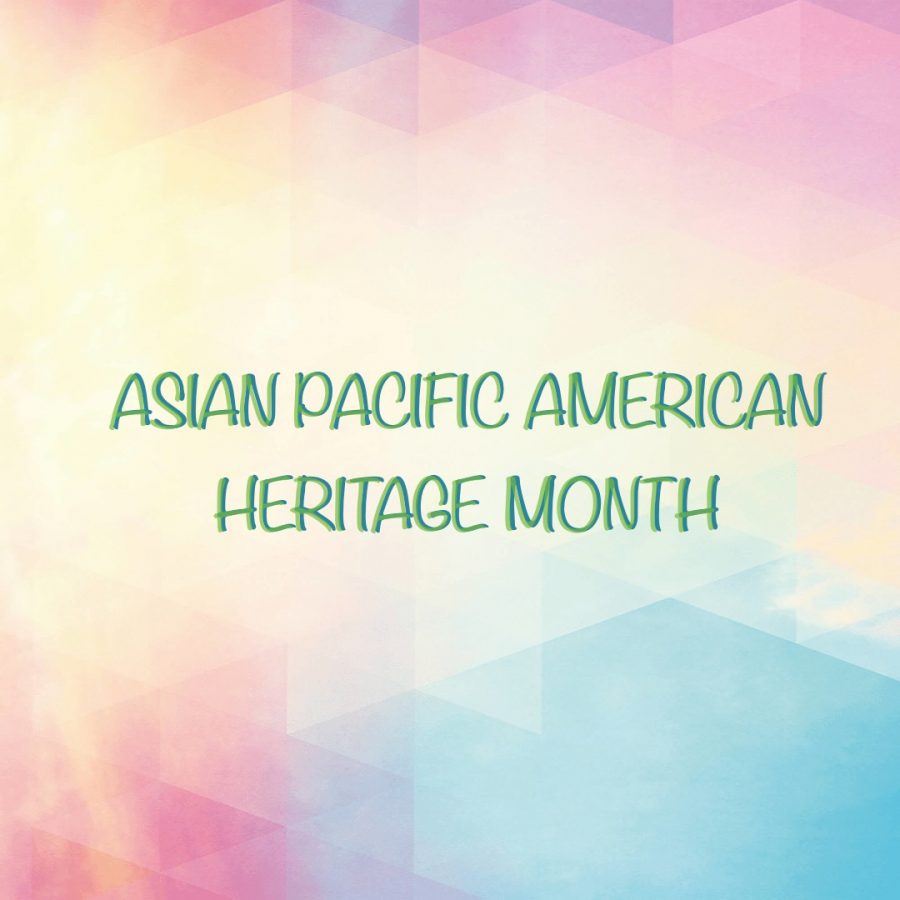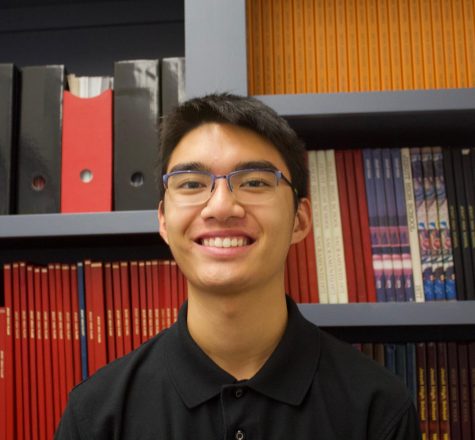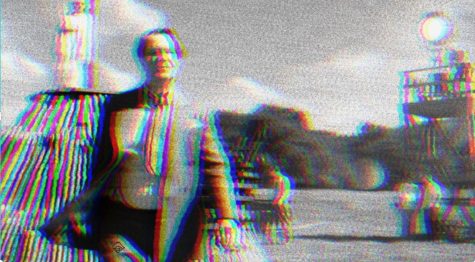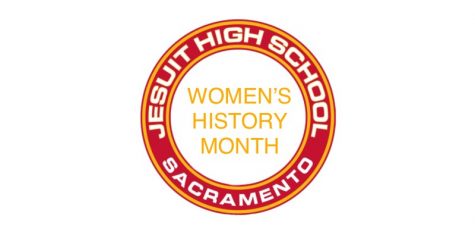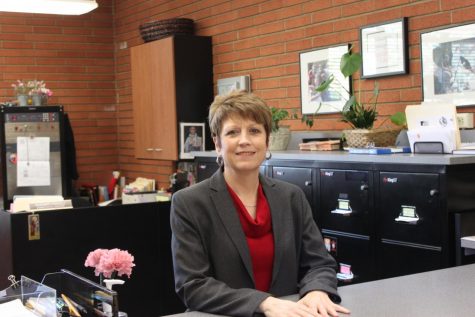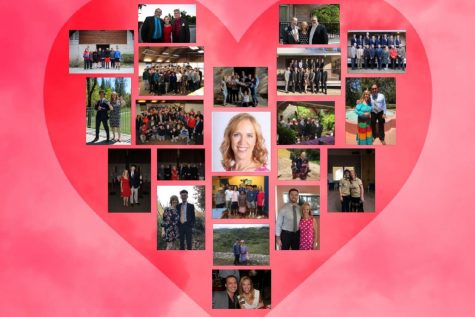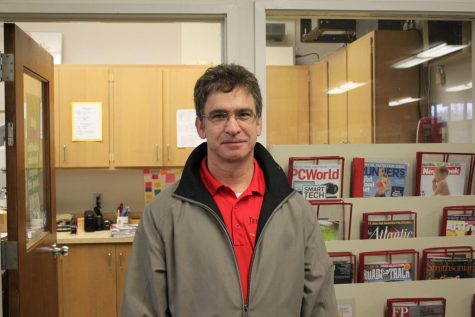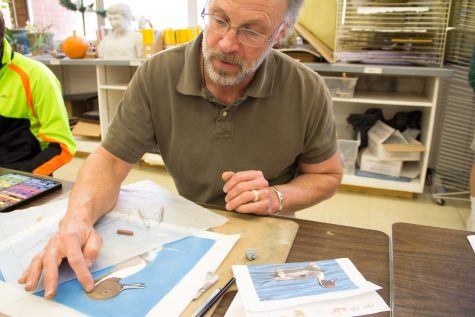Honoring Asian Pacific American Heritage Month
In May of 1843, the first Japanese immigrated to the United States. 26 years on, in May of 1869, the transcontinental railroad was completed with the help of thousands of Chinese laborers. Thus Congress designated the month of May as Asian Pacific American Heritage Month in commemoration of those events.
For this year’s honoring of Asian Pacific American Heritage Month, The Plank has asked the Jesuit Asian-Pacific Islander Club (APIC) members and faculty to reflect on what this time means to them, how the recent hate crimes brought by COVID-19 has affected this moment, and who their role models are.
For Aidan Reyes ’24, this time gives him the ability to truly share and celebrate his culture with others. With the month’s specific dedication, he believes others will be more receptive to learning and understanding the difficulties within the Asian American and Pacific Islander community.
“I feel that Asian Pacific American Heritage Month means expressing my culture to others,” Aidan said. “It’s a time when my culture can get recognized for the good and not the bad. I believe that it is a beautiful thing to be able to share my culture with other people and welcome people to take part in the celebration. I believe that it is also a time when our voices can be heard to talk about the problems that we face as a race. I feel that while it’s our month dedicated to our race and culture, people are most likely to listen to us and the feelings that we express.”
A usual time of celebration of one’s race and heritage, this year’s Asian Pacific American Heritage Month comes amidst COVID-19 hate and blame and the #StopAsianHate response — something that CJ Enriquez ’23 sees as reasons for why this month’s amplification of the Asian American and Pacific Islander community is even more urgent.
“It makes this month even more important because we need to stop Asian hate in this country and even the whole world,” CJ said. “It’s wrong and inexcusable for this to happen. We all should treat others like how we want to be treated.”
Science teacher Mr. Nick Lai reflects on how that current narrative of Asian hate has reshaped how Asian Americans and Pacific Islanders see themselves in relation to the world around them.
“Because of the unique circumstances surrounding this year, more Asian/Pacific Americans have had to consider and reflect on our place in society,” Mr. Lai said. “There is pressure from within and outside our communities to assimilate into our surroundings as if we cannot fully be a part of them while being ourselves, but the reality is that our appearances, and our names, do impact how we are perceived by others. Hate crimes don’t consider how much you act like everyone else.”
Given the different contexts and tones of this time, Mr. Lai asserts how this month can be reshifted in focus.
“With hate crimes towards Asian Americans on the rise due to the pandemic, the Asian American experience has received much more attention from the media and within Jesuit itself,” Mr. Lai said. “This Asian Pacific American Heritage Month can be different because it can focus on our experiences as people in a diverse society, not just the foods and languages that come from that part of the world.”
There’s undoubtedly a heaviness within the Asian and Pacific American community. Theology teacher Father Perry Petrich S.J. talks about how a time of sadness can be transformed into moments of gathering and solidarity.
“I’m not sure that you can ever go from mourning and fear to celebration directly,” Fr. Petrich said. “I think the first step is to be together — to help each other grieve, to fight fear with camaraderie and unity. And from that place of resilience, each moment can become a gift and perhaps a cause for celebration. But first, we need to listen to each other and take care of each other. And invite allies to do that with us.”
Coming together is exactly what APIC has done through weekly meetings.
“During the Asian Pacific American Heritage Month, the APIC club has gotten together on Zoom or in-person every Wednesday to interact and engage with each other,” said DJ Hoang ’21.“We used this opportunity to explore more of our heritage whilst becoming closer as Asian brothers, led by Fr. Petrich, Coach [Jonathan] Isaac, Coach Jay [Naccionales], and Mr. Lai.”
A part of this month CJ asserts is “making Asian/Pacific Americans be known this month. Knowing about their history, achievements, and culture.” He identifies Bruno Mars as one of the role models within the Asian American and Pacific Islander community.
Aidan shares some of his role models who have helped him become more comfortable with who he is and his identity.
“Definitely some of my family members and friends,” Aidan said. “I feel that for a while I struggled with finding where I belonged as an individual due to my race. I went to a predominantly white elementary school and now a predominantly white high school. My friends and family members have guided me to be proud of my race and [that] it’s okay to be different than everybody else. They have also helped me learn about my culture, whether it’s history facts or cooking traditional foods.”
But while others have role models they can point to, Mr. Lai doesn’t necessarily share that experience. He explains that “there are authors like Eric Liu, who wrote ‘The Accidental Asian,’ who have informed my understanding of the Asian American experience,” but other than that, he finds Asian American role models to be lacking.
“I don’t know if I have any role models in particular,” Mr. Lai said. “But it’s telling that there are no Asian American names that I look to as role models. That is how prominently featured Asian Americans are in the public eye and in our history books.”
This Asian Pacific American Heritage Month is different from the past. It is a moment where members of the Asian American and Pacific Islander community have had to question who they are, especially in relation to the world around them. For the Jesuit APIC community, it is a time of understanding one’s heritage and culture, but above all, it is a time to come together.

